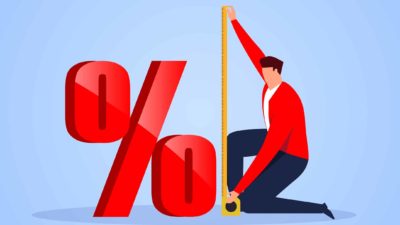As Australia emerges from its hard-fought battle to contain COVID-19, the last thing the nation needs is a trade war with its largest export market.
Yet China, whose own economic growth has slowed in the wake of the pandemic, appears intent on making an example of Australia. Even if that comes at a cost to its own economy.
Why?
As the Australian Financial Review reports:
China has intensified punishment against Australia because of the Morrison government leading calls for an inquiry into the origins of the coronavirus pandemic as well as criticism of China's human rights record and militarisation of the South China Sea and banning of Chinese tech company Huawei.
Aussie coal off the China menu
Since November, China has slapped hefty import tariffs on cotton, wine, timber, seafood, barley, and meat.
While painful to everyone involved in those industries, they represent a small percentage of Australia's total export earnings to China.
Which is why coal, Australia's third biggest export earner into China in 2019 (trailing LNG and iron ore) looks to have officially joined the list of sanctioned Australian goods.
For the past weeks Australian coal has been unofficially on the list of targeted imports, with dozens of laden ships denied entry into Chinese ports. This has already resulted in rising thermal coal prices in the Chinese market.
But China's government appears more concerned with further punishing Australia than about rising energy costs back home. And $14 billion of Aussie coal exports look to be in imminent jeopardy.
According to the AFR:
After months of an unofficial 'go slow', China's National Development Reform and Commission reportedly issued an edict on Saturday banning Australian coal, ostensibly to deal with surging coal prices.
According to state-run media outlet The Global Times, China's top economic advisory body decided to allow power stations to import coal without any clearance restrictions, with the exception of Australia.
Trade Minister Simon Birmingham demanded an explanation, saying: "I urge Chinese authorities to immediately rule out these reports of what, if accurate, would appear to be the use of discriminatory practices against Australian coal."
Is Aussie iron ore China's next trade war target?
Most leading analysts believe China can ill afford to ban Australia's iron ore. Particularly as Brazil's iron mines struggle with inclement weather and continuing virus impacts.
Chinese steel factories are on track to set record levels of production this year. And any crimp in iron ore supplies would see their costs rise.
As SCMP reports:
Crude steel production [in China] is set to reach a record high of 1.05 billion tonnes this year, a global record which accounts for more than 70 per cent of expected global output.
In the first 11 months of the year, imports of the mineral increased 11 per cent year on year to 1.07 billion tonnes, with Australia supplying more than 60 per cent.
Chris Richardson is a Deloitte partner and leading economist. According to Richardson (quoted by the Guardian):
Where China knows it is most at risk is iron ore. China is the world's key customer, but Australia is the world's key supplier. That's why analysts have said China wouldn't act on Australian iron ore, as it would cost them lots. However, markets are still worried that China may do something.
But cracks are appearing in these bullish assertions, and market fears may prove well-founded.
This headline comes from this morning's Australian, ' Beijing demands "please explain" on iron ore prices'.
The article notes:
Australia's largest mining companies — BHP and Rio Tinto — have been asked to explain to Chinese steel manufacturers why their iron ore prices are so high as the surging $85bn export undermines Beijing's eight-month trade retaliation campaign against the Morrison government.
Rio, Fortescue and BHP share prices at risk in trade war escalation
The 3 biggest suppliers of the $85 billion worth of Aussie iron ore exported to China each year are BHP Group Ltd (ASX: BHP), Rio Tinto Limited (ASX: RIO) and Fortescue Metals Group Limited (ASX: FMG).
All 3 have benefited from iron ore prices trading near 7-year highs. Last Thursday, iron ore hit US$158 (AU$212) per tonne. At time of writing, it's trading at US$154 per tonne.
This has helped the BHP share price lift 7.2% year-to-date, atop the company's 4.2% dividend payout.
Rio Tinto, which paid a 5% annual dividend yield, has seen its share price gain 11.4% so far this year.
And Fortescue's share price is up 99.4%, alongside the company's 8.2% dividend payout.
But China's sabre ratting could put further share price gains in jeopardy.
Atop its desire to punish Australia over mounting political disputes, China is eager to secure cheaper prices for its record steel output.
Indeed, most analysts believe iron is currently overpriced.
ANZ senior commodity strategist Daniel Hynes told Reuters: "Fundamentals suggest a price between $US90 and $US110/tonne is the fair value at the moment."
China's next move in the trade war remains unknown. As does the future price of iron ore.
But shareholders in Rio, BHP and Fortescue will undoubtedly be watching China's policy decisions closely.









